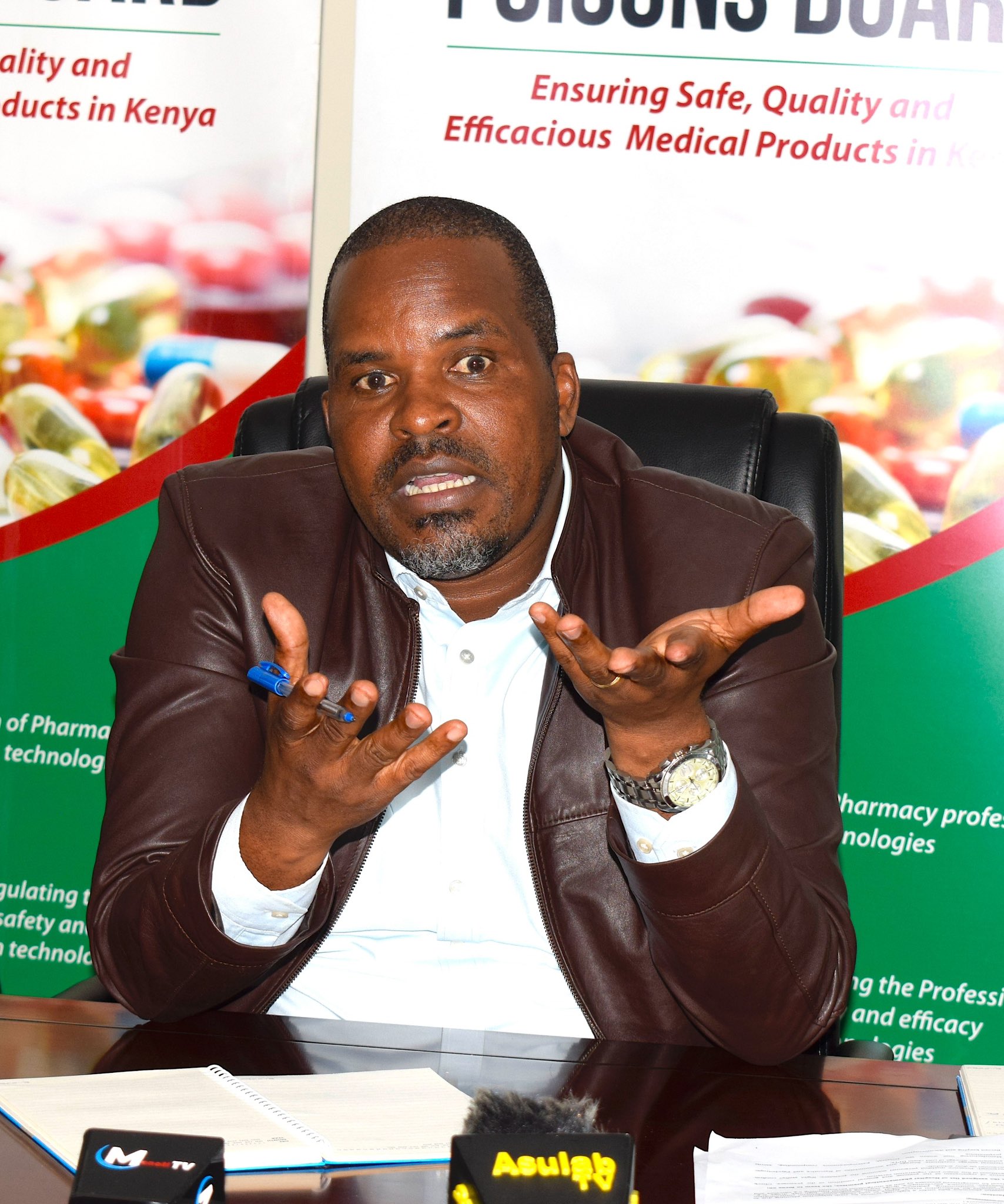
The Pharmacy and Poisons Board (PPB) has launched rigorous, ongoing audits of pharmaceutical wholesalers and Level 4 Hospitals across the country.
The initiative, which began with wholesaler audits on October 13, and expanded to Level 4 hospitals on October 20, 2024, aims to ensure adherence to critical compliance standards in the distribution and handling of medicines.
It also aims to enforce strict compliance with pharmaceutical regulations and enhance patient safety nationwide.
Head of Good Distribution Practices at PPB Julius Kaluai emphasised that the audits are targeting key areas to prevent risks such as medication errors, drug misuse and improper pharmaceutical handling.
Speaking in Nakuru during a media briefing today on behalf of CEO Fred Siyoi on Monday, Kaluai highlighted the importance of employing only qualified PPB-registered personnel in pharmacies.
This is to ensure cold-chain medicines are stored correctly and dispose of pharmaceutical waste according to PPB and NEMA guidelines.
The audits also address unauthorised relocations of wholesalers, theft of government-supplied medicines and unlicensed sales—practices that undermine healthcare integrity.
"This ongoing initiative underscores PPB’s commitment to safe, effective, and high-quality healthcare standards across Kenya," Kaluai said.
Pharmaceutical audits cover legal certifications, batching process, deviations in product output, history of client complaints and how they responded, corrective actions to previous infractions and rates of return.
This comes shortly after the PPB launched its first comprehensive plan to monitor the consumption of antimicrobial drugs, including antibiotics and antifungals.
This was initiated as a response to the rising trend of drug resistance, which threatens the effectiveness of treatments for various infections.
Then, Siyoi noted that the country lacked a national system to track antimicrobial use, underscoring that effective surveillance is essential for understanding consumption patterns and their link to resistance trends.
"If left unchecked, antimicrobial resistance has the
potential to reverse decades of medical progress, leaving us vulnerable to
infections that were once easily treatable," Siyoi warned.











